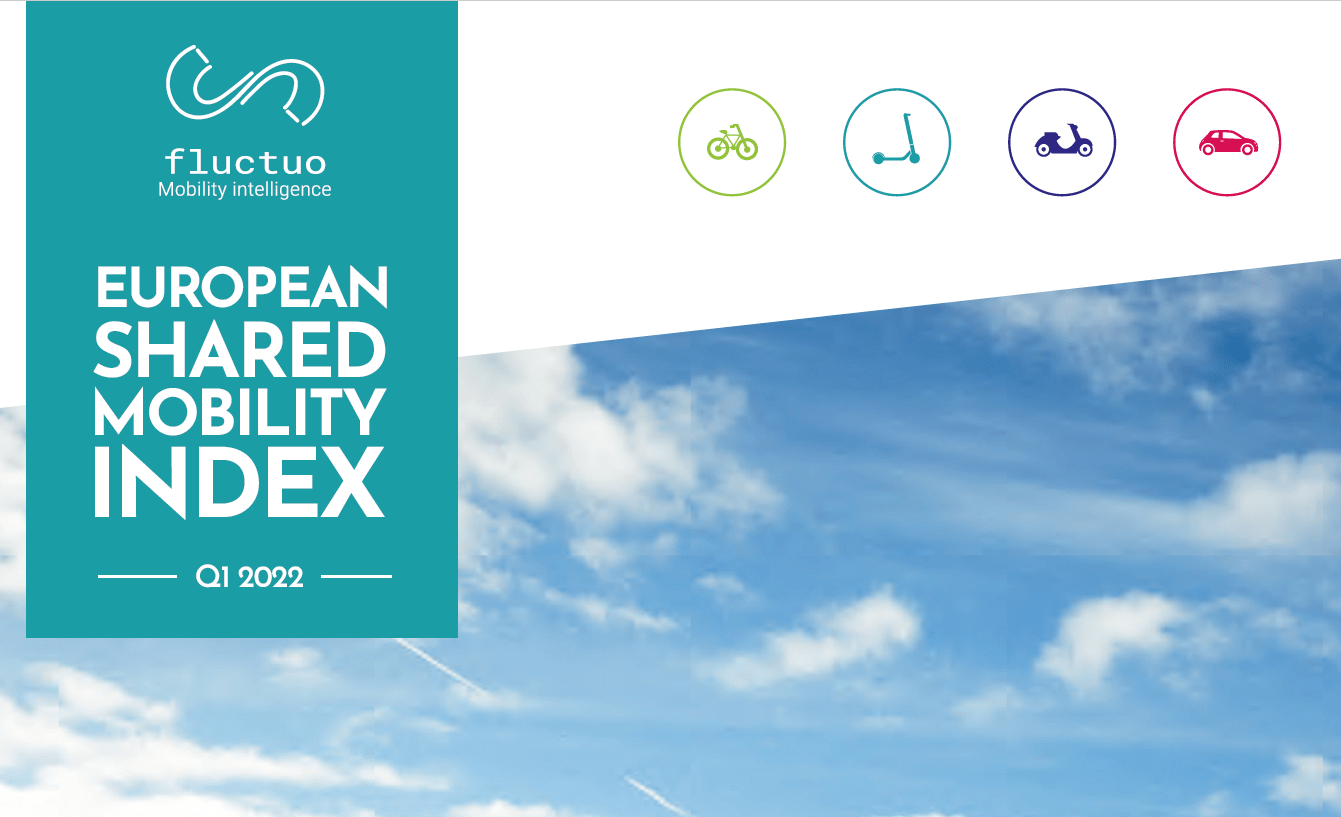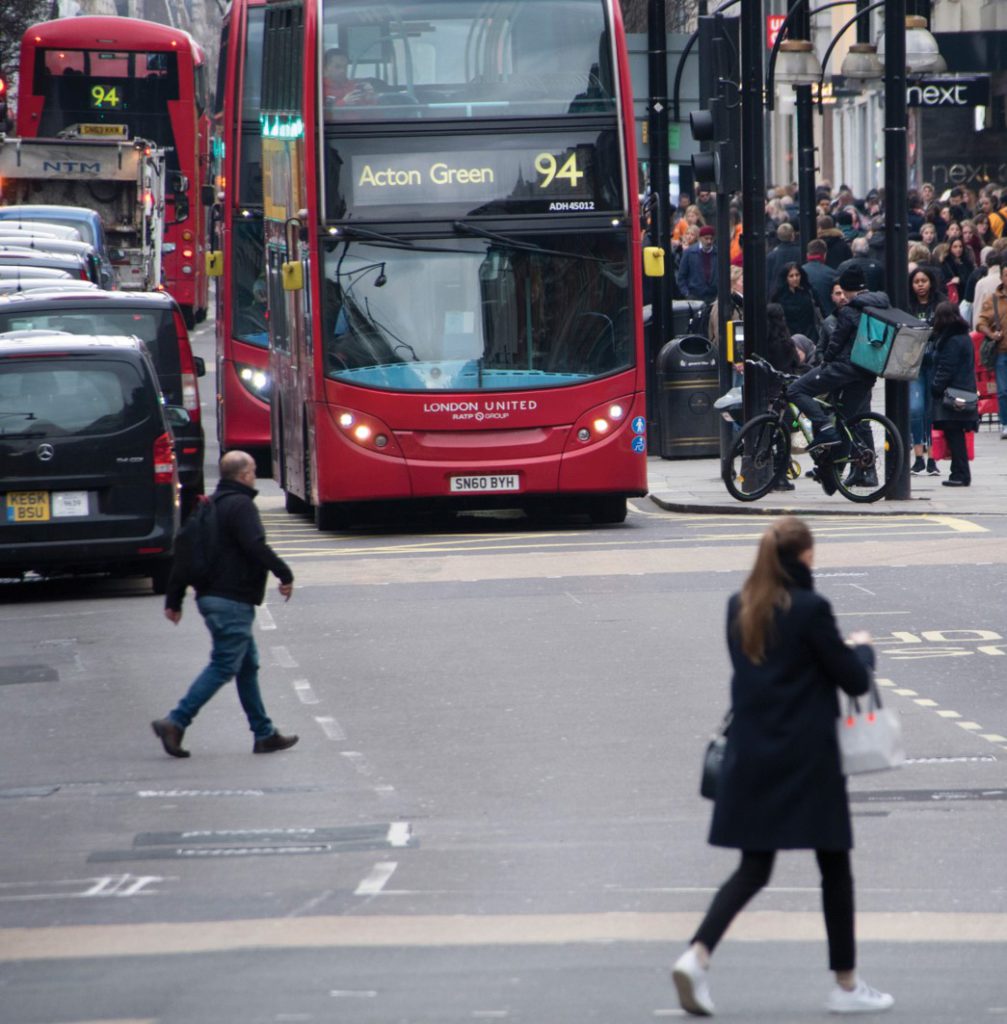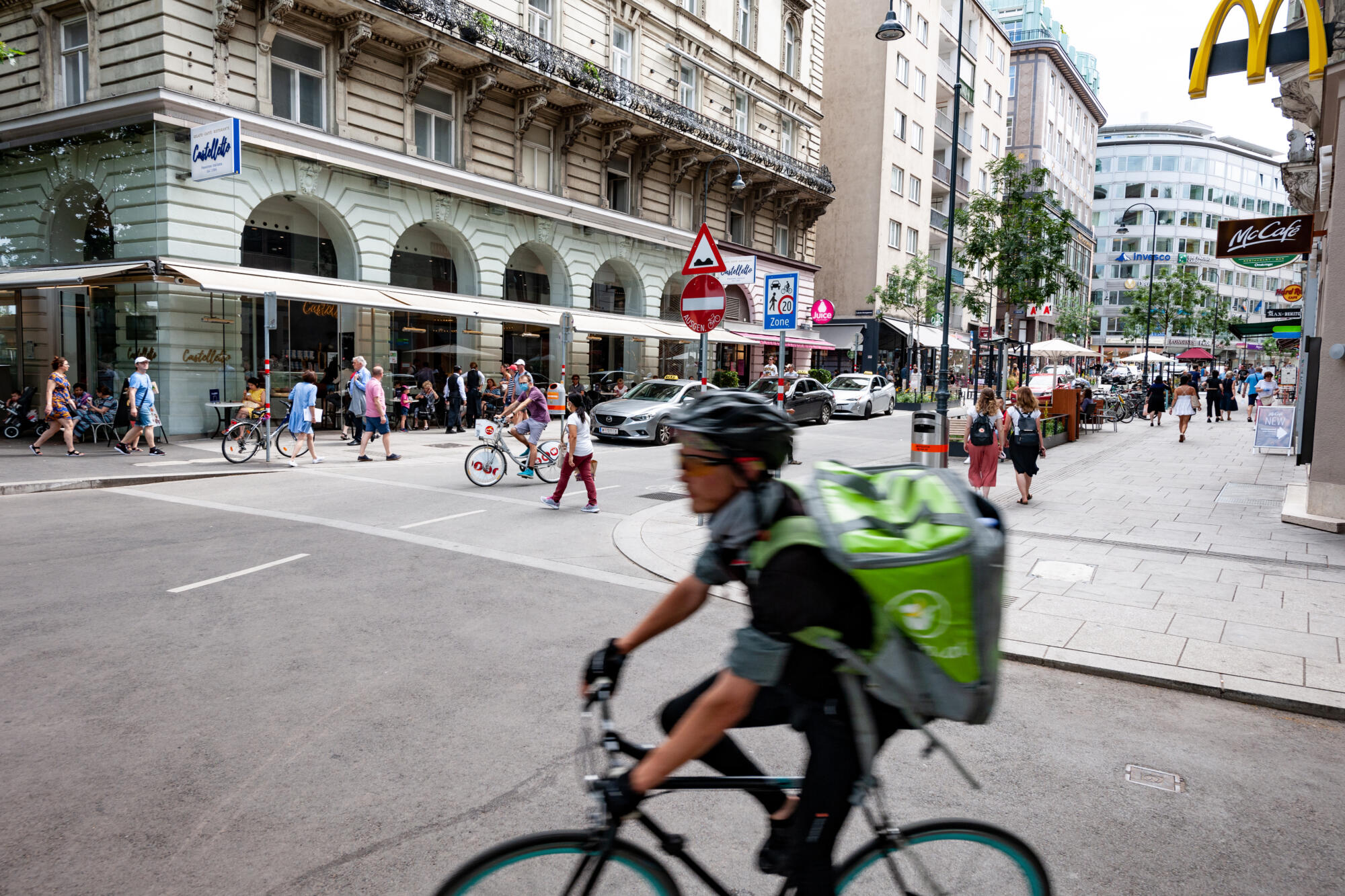Latest European Shared Mobility Index published
The latest European Shared Mobility Index, supported by POLIS and published by fluctuo, has been released, examining market evolution in a range of European cities- including many POLIS member cities.
“This is the 5th edition of the European Shared Mobility Index, and we are proud that it has become an industry reference. By sharing this data with public transport authorities, city officials, journalists and investors, we actively support the development of shared mobility services”, said Julien Chamussy, CEO of fluctuo.
The report provides an overview of changes in the market, changing market share of shared cars, mopeds, bikes and scooters- and key actions taken by cities.
This year there are 310,000 more shared vehicles compared to the same period last year- equating to 21% growth in trips between January-March. Shared scooters have seen the largest rise, with +177% year-on-year trip growth.
POLIS member city, Paris tops the list with the highest number of shared vehicles- followed by fellow members Berlin and Milan. There are 56,000 more shared scooters than 12 months ago, as well as 28,000 more shared dockless bikes and 12,000 shared mopeds.
In Brussels, TIER joined Bird, Bolt, Dott, Lime, Pony and Voi in a hyper-competitive market; meanwhile in the London- a far younger market- Dott & Human Forest launch electric bikes in the boroughs of Hammersmith & Fulham
Shared bike use has been supported by city’s expansion of active travel infrastructure. In Milan, the City Council approved a massive cycling network plan of €240m.
What is next?
fluctuo expects solid scooter ridership growth in 2022. Scooter operators have succeeded in surviving without tourists in 2020 and 2021 - by shifting their focus to local userships during the pandemic.
The 20 cities monitored
- Barcelona
- Berlin
- Bordeaux
- Brussels
- Copenhagen*
- Dublin*
- Hamburg
- Lisbon*
- London
- Madrid
- Milan
- Munich*
- Oslo
- Paris
- Prague
- Rome
- Rotterdam
- Stockholm
- Vienna
- Warsaw
*Cities added to the Index for the Q1 2022 edition
Methodology
The European Shared Mobility Index provides a quarterly snapshot of the market across 20 cities, selected to highlight diversity in size, geography and market characteristics.
The Index encompasses shared bikes, scooters, mopeds and cars. Ride-hailing services (e.g. Uber), car-pooling (e.g. BlaBlaCar) and long-term rental services (e.g. Swapfiets) are not included.
Vehicle and trip data was sourced directly from operators, open data sources, mobile applications and public announcements. Industry averages and some data extrapolation were used to fill remaining data gaps. Operators who contributed financially to this report have not received any favourable treatment.
The full report can be downloaded here.







